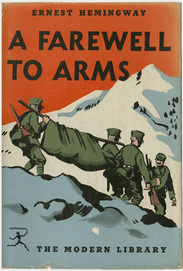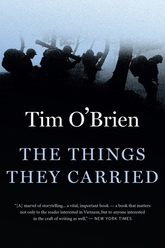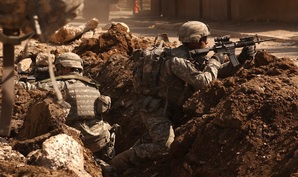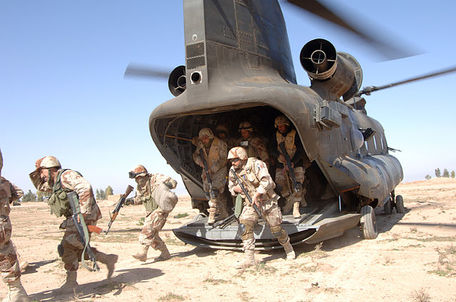|
By Michael Comoroto
 “All they know of war is what they’ve seen in movies and television.” Graham stirred a packet of sugar into his coffee. “And most of the war movies that have been released in the past few years--Zero Dark Thirty, Seal Team Six, American Sniper—glamorize war…but there is nothing glamorous about war.” He gulped the air, and then added, “There aren’t any great novels about the common soldier in the current war, and our country needs them.” Screenwriters and directors are seducing film buffs and triggering political debates with their glamorized portrayals of the War on Terror and elite military units. Zero Dark Thirty and Seal Team Six are detailed accounts of the events that led to the discovery and death of Osama bin Laden. Both films are journalistic in their approach in that they rely heavily on facts and current political issues, generating controversy with their depictions of CIA torture tactics. Consequently, we are never able to forge any real emotional connection to the characters. Similarly, American Sniper is a biographical account of the most lethal sniper in American history. The film celebrates the heroics of Chris Kyle, an elite Navy Seal Sniper, and fails to capture what life is actually like in the trenches. Most Infantrymen, whether patrolling the streets of Baghdad or humping through the ever-changing terrain of Kandahar, had a very different military experience than the members of Seal Team Six and Chris Kyle. Their stories aren’t as action-packed or glamorous, but we need to hear them, and script writing may not do them justice. Movies, though visually stimulating, are limited in terms of time constraints and having to tell a story primarily through dialogue. Novels, on the other hand, can provide unlimited space for descriptions and insight into a character’s mind. In the past, wars have provided writers with inspiration for grand works. Great literature was produced in the wake of both World Wars and Vietnam: All Quiet On The Western Front, The Things They Carried, A Farewell to Arms, and Slaughterhouse-Five. These works are still used worldwide to educate people about battle and the treacherous conditions soldiers experience while deployed. These novels don’t center on the achievements of the military’s elite fighting squads. Rather, they focus on the common man, examine war’s effect on society as a whole, and bring to light the stresses that remain in a soldier’s mind long after his body is out of harm’s way. Though powerful contemporary war novels may exist, they have yet to pierce the public consciousness in the way of those classics -- or Hollywood's versions.  And that's unfortunate, because not only does a great war novel bring clarity to war, but also it offers readers a perspective of war that is different from the one portrayed in recent films: a novel can let readers experience the horrors and realities of war through the eyes of a soldier. Most people will never have their heels rubbed raw in boots or carry a rucksack twenty miles through the desert. They’ll never hunker down below a mound of dirt to pray while bullets whiz over their Kevlar helmets like bees. They’ll never hear the whir of helicopter blades or the whistle of mortar fire. And they’ll never make a heavy machine gun bark like a rabid dog. A great novel about the current war will help to shed light on what our soldiers experience on a daily basis while deployed as well as the obstacles they face as they attempt to reintegrate into civilian life after combat. For over a decade, people have been risking their lives for our country. Even now, soldiers stationed throughout the Middle East—Kuwait, Iraq, Afghanistan, and Qatar—melt into Government Issue combat boots like scoops of ice cream left out in the sun. And there are men and women—soldiers like Staff Sergeant Graham—whose stories deserve a spot in history.
0 Comments
Leave a Reply. |
Archives
April 2024
Categories
All
|
|
Glassworks is a publication of Rowan University's Master of Arts in Writing 260 Victoria Street • Glassboro, New Jersey 08028 glassworksmagazine@rowan.edu |
All Content on this Site (c) 2024 Glassworks
|




 RSS Feed
RSS Feed
